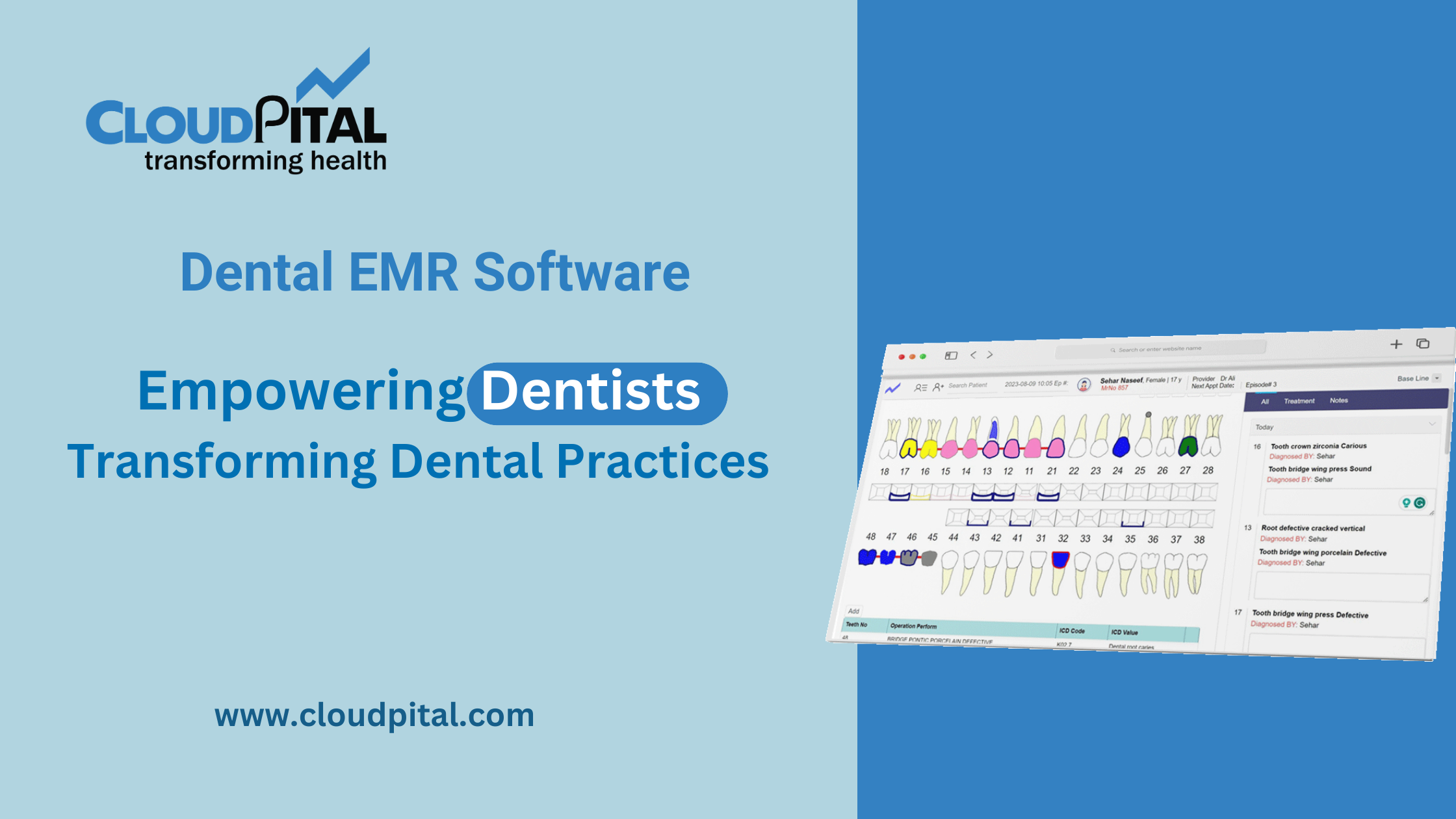Cloudpital # 1 is one of the top PMS in Saudi Arabia under the Vision 2030 initiative, the adoption of Practice Management Systems (PMS) is crucial for streamlining operations and enhancing the quality of care. However, the successful implementation of these systems hinges on comprehensive training programs. Effective training ensures that healthcare professionals can fully utilize the features of PMS, leading to improved efficiency, patient satisfaction, and overall operational excellence. This essay explores the importance of training for PMS adoption in Saudi Arabia, highlighting key areas such as user proficiency, workflow integration, change management, and continuous improvement.
Click to Start Whatsapp Chatbot with Sales
Mobile: +966547315697
Email: sales@cloudpital.com
Cloudpital # 1 PMS in Saudi Arabia

Enhancing User Proficiency
User proficiency is a critical factor in the effective utilization of PMS in Saudi Arabia. Comprehensive training programs are essential to equip healthcare staff with the necessary skills and knowledge to navigate and utilize the system efficiently.
System Navigation
Training sessions should cover the basics of system navigation, including how to log in, access patient records, schedule appointments, and generate reports. This foundational knowledge ensures that users can perform essential tasks without difficulty.
Feature Utilization
PMS comes with a variety of features designed to streamline different aspects of practice management. Training should delve into the specifics of these features, such as electronic health records (EHR), billing and coding, appointment scheduling, and inventory management. Understanding these features enables users to leverage the full capabilities of the system.
Problem-Solving Skills
Users should be trained to troubleshoot common issues and navigate through system updates. This reduces dependency on IT support and ensures that minor technical glitches do not disrupt daily operations.
Facilitating Workflow Integration
Integrating PMS into existing workflows is a complex process that requires careful planning and training. Proper training helps to minimize disruptions and ensures a smooth transition.
Workflow Mapping
Training programs should include sessions on how to map current workflows to the new system. This involves understanding how different tasks and processes will be carried out using PMS, ensuring that the system complements and enhances existing practices rather than disrupting them.
Customizing Workflows
Many PMS in Saudi Arabia solutions offer customizable workflows to suit the specific needs of a practice. Training should cover how to tailor these workflows to optimize efficiency and ensure that the system aligns with the practice’s operational needs.
Role-Based Training
Different staff members will interact with PMS in various ways based on their roles. Tailored training programs for doctors, nurses, administrative staff, and billing personnel ensure that each group understands how to use the system to perform their specific tasks effectively.

Supporting Change Management
Adopting a new EHR Systems in Saudi Arabia involves significant changes to how a healthcare practice operates. Effective training is a cornerstone of successful change management.
Addressing Resistance
Change can be met with resistance, especially from staff who are accustomed to established processes. Training programs should include change management strategies to address concerns, demonstrate the benefits of the new system, and encourage a positive attitude towards the transition.
Stakeholder Engagement
Engaging stakeholders, including management and staff, in the training process fosters a sense of ownership and commitment. When stakeholders are involved and their feedback is considered, they are more likely to support the adoption of PMS.
Continuous Communication
Training should be accompanied by ongoing communication about the progress and benefits of PMS implementation. Regular updates, feedback sessions, and open forums for discussion help to keep everyone informed and engaged throughout the transition period.
Ensuring Continuous Improvement
Healthcare is a dynamic field, and continuous improvement is vital for maintaining high standards of care and operational efficiency. Ongoing training plays a crucial role in fostering continuous improvement.
Refresher Courses
Periodic refresher courses ensure that staff members remain proficient in using PMS and stay updated with any new features or system upgrades. This continuous learning approach helps to maintain high levels of efficiency and effectiveness.
Advanced Training
As users become more comfortable with the basic functionalities of PMS, advanced training sessions can help them explore more complex features and capabilities. This deeper understanding can lead to innovative uses of the system, further enhancing practice operations.
Feedback Mechanisms
Training programs should incorporate mechanisms for collecting feedback from users. This feedback can provide valuable insights into areas where the system or the training process can be improved. Continuous feedback loops contribute to ongoing optimization of both the PMS and the training programs.
Specific Training Strategies
Implementing an effective training program for PMS adoption involves several specific strategies that cater to different learning preferences and organizational needs.
Onsite Training
Onsite training allows trainers to provide hands-on guidance and address specific questions or concerns in real time. This approach is particularly useful for complex Remote Patient Monitoring in Saudi Arabia where direct interaction can facilitate better understanding.
Online Training Modules
Online training modules offer flexibility, allowing staff to learn at their own pace and revisit materials as needed. These modules can include video tutorials, interactive simulations, and quizzes to reinforce learning.
Blended Learning
A blended learning approach combines onsite and online training, offering the benefits of both methods. This approach can accommodate different learning styles and provide comprehensive coverage of the system’s functionalities.
Train-the-Trainer Programs
Train-the-trainer programs prepare selected staff members to become internal trainers. These individuals can then provide ongoing training and support to their colleagues, ensuring that knowledge is retained and disseminated throughout the practice.
Simulation-Based Training
Simulation-based training involves creating realistic scenarios that users might encounter in their daily work. This hands-on approach helps users to apply what they have learned in a controlled environment, building confidence and competence.
Conclusion
The adoption of Practice Management Systems is a significant step towards modernizing healthcare practices in Saudi Arabia, aligning with the goals of Vision 2030. However, the successful implementation and utilization of PMS depend heavily on comprehensive training programs. Training enhances user proficiency, facilitates workflow integration, supports change management, and ensures continuous improvement. By investing in robust training strategies, healthcare practices can maximize the benefits of PMS, leading to cost savings, increased efficiency, and improved patient care. As the healthcare landscape continues to evolve, ongoing training and development will remain essential for leveraging the full potential of PMS and achieving excellence in healthcare delivery.
Click to Start Whatsapp Chatbot with Sales
Mobile: +966547315697
Email: sales@cloudpital.com
PMS in Saudi Arabia
PMS in Saudi Arabia
PMS in Saudi Arabia
The Importance of Training for PMS in Saudi Arabia Adoption similar software solutions prices were updated on 2025-06-15T19:30:22+00:00 in Saudi Arabia in Mecca, Medina, Riyadh, Khamis Mushait, Yanbu, Jeddah, Dammam, Unaizah, Uqair, Ha’il, Ta if, Al Bahah, Dhahran, King Abdullah Economic City, Najran, Diriyah, Qatif, Khafji, Jubail, Abqaiq, List of Cities and Towns in Saudi Arabia, Ras Tanura, Turubah, Jazan Economic City, Knowledge Economic City, Medina, Khobar, Abha, Tabuk, Saudi Arabia, similar software solutions prices were updated on 2025-06-15T19:30:22+00:00 We also provide in Saudi Arabia services solutions company in Hafar Al-Batin, Udhailiyah, Al-Awamiyah, Hofuf, Hautat Sudair, Buraidah, Tayma, Duba, ‘uyayna, Saihat, Al-Kharj, Al-ula, Jizan, Rumailah, Ar Rass, Arar, Shaybah, Al Majma’ah, Rabigh, Dhurma, Haradh, List of Saudi Cities by Gdp Per Capita, Badr, Sudair Industrial City, Baljurashi, Shaqraa, Al-Khutt, Habala, Ad Dawadimi, Dawadmi, Layla, similar software solutions prices were updated on 2025-06-15T19:30:22+00:00 Price is SAR 100 and this was updated on updated on 2025-06-15T19:30:22+00:00 similar The Importance of Training for PMS in Saudi Arabia Adoption software solutions prices were updated on 2025-06-15T19:30:22+00:00 in Saudi Arabia in Haql, Afif, Al-Abwa, Farasan, Al-Jaroudiya, Thadig, Al-Thuqbah, Al Wajh, Almardmah, Al-Zilfi, Muzahmiyya, Prince Abdul Aziz Bin Mousaed Economic City, Tharmada’a, Skaka, Um Al-Sahek, Sharurah, Tanomah, Bisha, Dahaban, Al Qunfudhah, Qurayyat, Saudi Arabia, Ha’ir, as Sulayyil, Al Lith, Turaif, Al-Gway’iyyah, Samtah, Wadi Ad-Dawasir, Az Zaimah, Safwa City, Jalajil, Harmah, Mastoorah, Hotat Bani Tamim, Jabal Umm Al Ru’us, Rafha, Qaisumah, Al-Ghat, Hajrah, Al-Hareeq. Excerpt: Jeddah (also spelled Jiddah, Jidda, or Jedda; Arabic: Jidda) is a Saudi Arabian city located on the coast of the Red Sea and is the major urban center of western Saudi Arabia similar software solutions prices were updated on 2025-06-15T19:30:22+00:00 Price is SAR 100 and this was updated on updated on 2025-06-15T19:30:22+00:00
29-5-2024



